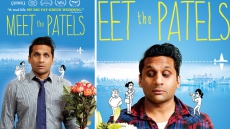Khalida Brohi was 16 when her cousin was killed in an honour killing case. In that phase of shock and trauma, Brohi decided to take her first step confronting honour killing, challenging the social infrastructure controlling lives and choices of women.
In July 2016, Qandeel Baloch, a 26-year-old Pakistani social media celebrity, was murdered by her brother in her family home in Multan. It was another case of honour killing following the horrific stoning of three-month pregnant Farzana Parveen, which happened outside Lahore’s high court in 2014, and one that raised furore amongst activists and world media towards the
crippling state of law defending women’s rights in Pakistan.

In October 2016, amidst on-going protests and public backlash, Pakistan’s government sealed a crucial loophole allowing murderers in honour killings to escape sentence by receiving pardon from the victim’s family. Previously, when a father killed his daughter or a brother killed his sister, he could escape sentence by seeking forgiveness from his own family – a wife could forgive her husband or a mother could forgive her son. Under the new law however, a murderer would only be eligible for pardon if his or her punishment is a minimum of 12-year life imprisonment.
Although such a law in Pakistan is revolutionary, it does very little to establish an independent and progressive state of women. Institutions gripping freedom and choices of women are not wavered by such laws, and jirgas or panchayats functioning as institutions of communal justice in Pakistan are one of them. This is why Khalida Brohi, a long-time advocate and activist for women’s rights in Pakistan, decided to switch gears after spending years fighting honour killings and propagating for women’s rights and finally ventured into creating income opportunities for women to make them economically independent and aware. “There is this culture of making a girl invisible after she is killed in the name of honour killing. People would refuse to take her name. How can we get legal systems involved when something is so difficult [and] so hard to understand?” questions Brohi who experienced the trauma of honour killing at the age of 16 when her cousin was killed by an uncle.

With her father, Brohi began laying down the groundwork to fight honour killing and it was during this extensive process that she came across several challenges but never gave up on her resolve to end honour killing. “I was 16. In those times, as a teenager when you’re angry you just feel like you can just achieve whatever. I thought and believed and I still do that we can end honour killing and that’s how I started,” she describes.
Contributing to the sustenance of honour killing is a feudalistic mindset regressive to the freedom of women and repulsive to class inequality leading to internalized oppression of various groups. When Brohi was advocating against this practice grounded in communities as legitimate, she faced severe backlash – some said she was going against her culture, for others she was too bold as a female to question control and authority.
After three years of advocating against honour killing in and around her village, Brohi took a different approach and launched Sughar Empowerment Society in 2009, a social enterprise with a mission to empower rural and tribal women with socio-economic solutions. Sughar does this by training women into entrepreneurship, redevelopment, women’s rights, and traditional embroidery – embroidery being a tool to bring women to the centre and have them attend other sessions. “I feel like the only reason people stay poor is because they are in the cycle of needing to use the money immediately. The biggest thing we could learn to teach these women was to invest. It turned out fantastic!” explains Brohi, winner of Forbes’ 2015 Top 30 Under 30 Asia title.

Borhi also touches on her own transformative experiences at Sughar. Some years back, a team member who had escaped honour killing decided to go back to her family with her husband. “I told her I’m going to get her divorced because they will kill her. She still has that risk on her head. But in that time she fought, she said ‘I’m going to do this because my family is going to be happy. Just trust me and let me go’.” Brohi adds, “I was in trauma for 6-7 months and she comes back blooming, a new person. I thought I would never see her so happy. It made me realize that sometimes as non-profits or NGOs we actually impose our understanding of happiness on people… And that is wrong. That led us to make so many changes to work with women to help them cope themselves to just unleash the potential within them and let them be their own leaders instead of us coming to them and telling them what’s right and what’s wrong.”
To broaden the scope of Sughar Empowerment Society and amplify reach of its 24 centres outside Pakistan, Brohi launched Sughar Foundation in the United States in 2014. As a chief visionary officer, Brohi oversees creative aspects whereas Saba Nazneen Ghori, a long-time activist for women’s rights and awareness, undertakes the executive director’s position. Together with their team, Brohi and Ghori are empowering women and challenging a status quo that embeds honour killing and women subjugation as legitimate traditional practices.





